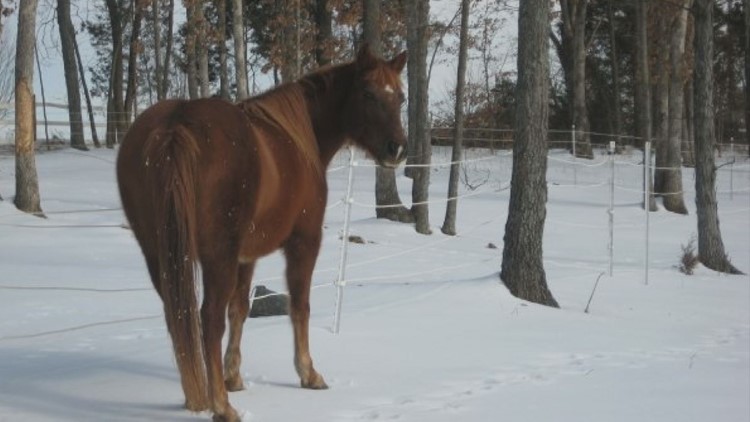FRANKLIN COUNTY, Mo. — If you've ever loved an animal, you know the loss of a pet can be devastating.
It's a loss one Jefferson County woman is experiencing after the death of her horse, Honey.
But instead of spending her time grieving, she's desperate to find out where her beloved horse ended up.
What the I-Team found out has two businesses closing their doors.
In Michelle Patterson's barn, one stall will always remain empty.
"I think about her every time I pass her door. I just wonder where she ended up," said Patterson.
She's talking about Honey, her longtime pet horse.
Fifteen years ago, she bought Honey for her young daughter. As time went on, and Patterson's daughter spent less time with Honey, Michelle developed a special relationship with the small horse.
But in late September, Honey caught a deadly infection.
"I knew it was time to have her put to sleep," recalls Patterson.
Next came a problem most other pet owners don't have to consider: what do you do with the remains of a pet that can weigh more than 1,000 pounds?
"They're huge, you just can't move them. You have to have a bobcat," said Patterson.
With no other options, Patterson says her veterinarian put her in touch with a woman who operated a hauling and burial company in Franklin County. For $850, the woman — Lori Julius — told Patterson she would take Honey to a better place
"She said 'She'll be buried on a shady hillside in her own grave, on a very peaceful farm,'" said Patterson.
Deep in grief, Patterson paid the money and Honey was gone. It was a decision that still haunts her, because as her grief began to lift Patterson began investigating Julius and her hauling company.
"I found out she didn't have a license to do this hauling and burying of deceased animals," said Patterson.
Why do companies even need to be licensed for dead animal disposal? The Department of Agriculture says it's a public health risk. Improperly disposing of dead animals can contaminate groundwater, and spread disease.
Worried her beloved horse might've ended up in a landfill, Patterson asked us to find Honey.
"I just want to know the truth. That she's at peace," said Patterson.
The I-Team spoke with Julius, who declined to be on camera. She says she hauls horses because there is a need, and no one else is doing it.
Julisu gave us the name of the man who owned the farm where Honey was buried.
We tracked him down, but agreed not to use his name.
I-Team: Where are the horses?
Farm owner: Why are you asking that PJ?
We told him about Patterson's concerns
Farm owner: I've got a farm. I've got 40 acres dedicated for burial in a wooded area. OK? Lori brings me horses and it's very few anymore because I don't want any and I'm hard to get along with.
I-Team: we would like to just see it. If possible. If you're willing?
Farm owner: No, I'm not willing. Because I don't like news people. I couldn't tell you where any horse I've buried is.
The I-Team verified the farm owner has large parcels of land in Franklin County.
That finding is some comfort for Patterson, even though she'll never be able to visit honey's final resting place.
"I just want to know there is a farm, that Honey's at peace," said Patterson.
It turns out neither the woman who hauled the horse nor the man who buried it on his farm were licensed to do so. The farm owner told us he was at one time licensed through Franklin County.
They both say they'll no longer be operating their businesses because it's simply too much hassle.
They say they mostly did it because there was such a need for horse disposal at one time.
The Department of Agriculture is investigating.



